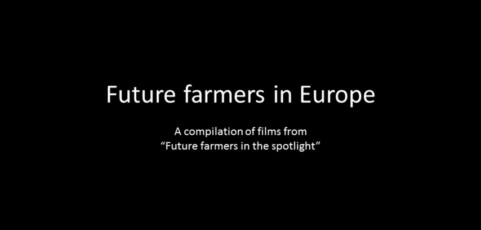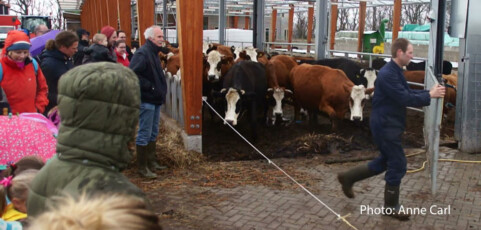To many analysts, global water governance is about getting the institutions right: more accountable water users and more public participation in decisions. But are we barking up the right tree? In this analysis, we argue that when analysing global water governance, one needs to look at the global players that really matter – an exclusive group of global food traders. These traders must be held accountable for their water footprint.
Farming for healthy urban tap water
New York City’s water is kept safe and clean by an innovative cooperative agreement with farmers that benefits both the city and rural communities. The programme demonstrates that water utilities can go beyond applying traditional engineering solutions and pioneer innovative governance, management and financial arrangements with upstream farming communities.
Water harvesting: nourishing the land, body and mind
Bouwas Mawara and his wife Nyengeterai, small scale farmers in the semi-arid Zvishavane district of Zimbabwe, are renowned for their innovation in water harvesting for crop and animal production, and for setting up local structures and systems to spread innovations amongst fellow farmers. Today at least 160 farming families in their community are more resilient in the face of droughts, dry spells and the long dry season.
A technology to drastically save irrigation water
At the Centre for Environment Concerns, an NGO based in Hyderabad, India, the challenge was clear: develop an inclusive irrigation technology suitable for low rainfall areas. Alongside farmers and female farm labourers, they developed a system that provides assured moisture directly to the plant root zone. Initial trials show two unique benefits: it requires about one fifth of the water needed for drip irrigation and it supports a healthy soil ecosystem. Key to the effectiveness of this technology appears to be the gradual wetting of the soil rather than abrupt provision of water in ‘concentrated’ loads.
The páramo, where water is born
San Isidro is an indigenous community in Ecuador’s central Andes that collectively built and manages an irrigation pipeline. The pipeline has brought life back to family farming and created more space for the community to protect the páramo, a source of water and life for farming communities and urban residents alike. This story proves the strength of longstanding models of community organisation allied with the national indigenous movement.
Struggle and success in an inter-regional water conflict in the Peruvian Andes
Large hydraulic projects that aim to capture and control water flows are increasingly entering territories of local Andean communities. This is a story of pastoralists in the region of Huancavelica, Peru, who stepped up in defence of their local wetlands, pastures and water sources. After more than a decade of protest, alliance building and negotiation they have established themselves as the crucial actor in inter-regional water governance.
A watershed evolving
Intense watershed management and water harvesting in the state of Tigray, northern Ethiopia, have transformed the area beyond recognition and increased food security and enhanced resilience to floods and droughts. A new way of thinking about watershed management and the efforts of local farmers have contributed to the success of a number of initiatives.
Future farmers in Europe
“Go for it. Reclaim the fields!” All around Europe, young people with no agricultural background are setting up farming initiatives. Despite the many difficulties these new farmers face, their systems are innovative, viable and sustainable. They are a response to Europe’s emptying countrysides, and their numbers are growing. Why and how did they make this radical choice? What do they gain from their hard work? What did they learn? This short video portrays 8 ‘future farmers’ from France, Ireland, Germany and the Netherlands.
Producers and consumers build new food practices
Initiatives based on ‘short chains’ between farmers and consumers are slowly but surely gaining ground in the Netherlands, a country with a strongly industrialised food system. Looking for ecological, healthy, and fresh food, urban consumers are now creating innovative channels that support local and organic food producers.




